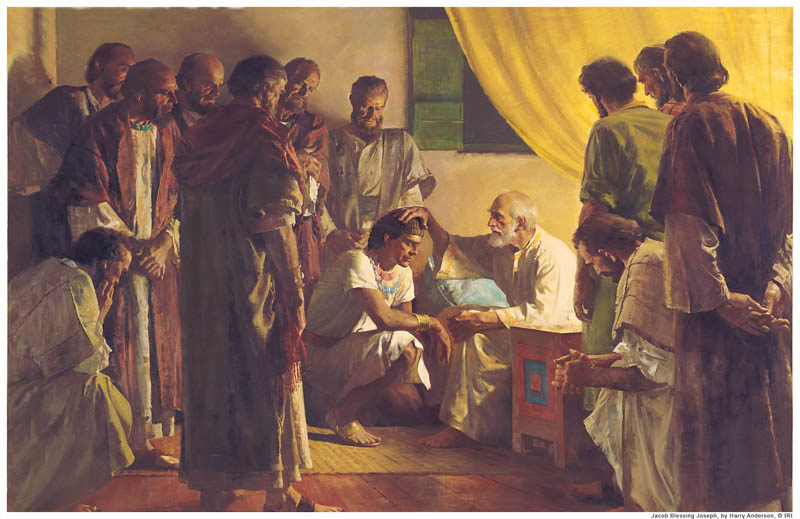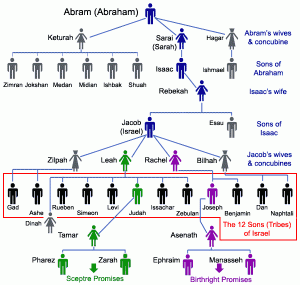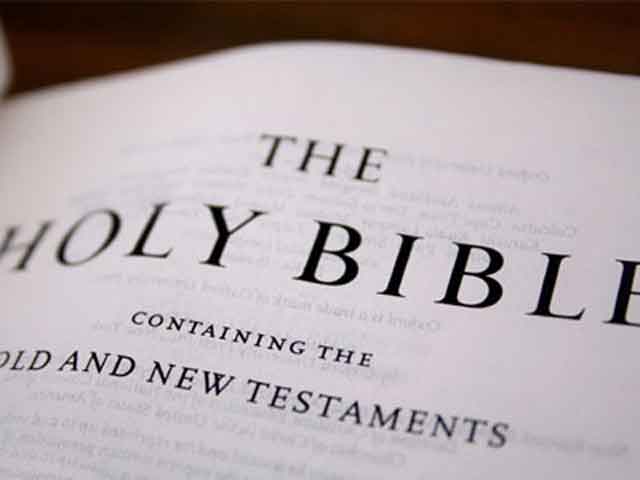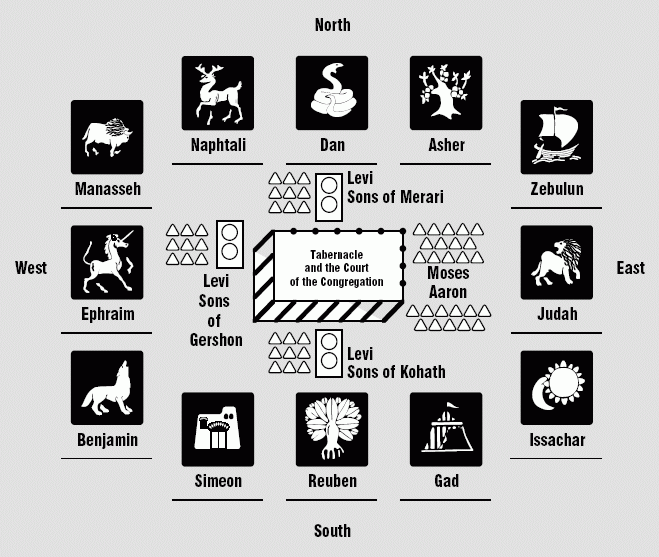Question
Dear Gramps:
Did Joseph Smith, Jr. teach that he was descended from the House of Ephraim? If so, did he mean this literally or allegorically? Can you explain or clarify regarding the distinctions between the House of Israel, the House of Judah, and the House of Ephraim? Are the names or words “Israel” and “Judah” interchangeable? Can a person whom Jewish people refer to as a gentile be of the House of Israel? I have read that members of the LDS Church sometimes refer to non-LDS members as Gentiles (even those non-members who are Jewish). Can you clarify? If a person becomes a member of the LDS Church, is he then “adopted” into the House of Israel, or was he truly a member all along and by joining, has found his “home”, so to speak? Please let me know if you can provide any guidance on these questions. Thank you.
Shane
Answer
Dear Shane,
The Houses of Israel, Judah, and Ephraim hold profound significance within the doctrine of The Church of Jesus Christ of Latter-day Saints. These houses are not merely historical constructs; they represent the covenant relationship between God and His people, encapsulating God’s promises and His plan for the gathering of Israel in the last days.
The ‘House of Israel’ refers to the descendants of Jacob, who was renamed Israel after wrestling with an angel (Genesis 32:28). Jacob had twelve sons, each of whom became the progenitor of one of the twelve tribes of Israel. The covenant made with Abraham, Isaac, and Jacob established these tribes as God’s chosen people, promising them blessings contingent upon their faithfulness to His commandments.
The covenant with Israel is foundational to their identity. God promised that they would be a great nation and that through them, all nations of the earth would be blessed (Genesis 12:2-3). In Latter-day Saint belief, the House of Israel plays a pivotal role in the latter-day gathering of Israel. The scriptures affirm that the Lord will gather His people from among all nations, which signifies a physical and spiritual return to Him (Ezekiel 37:21-22; Jeremiah 30:3).
Despite the promises, the House of Israel faced significant challenges, including apostasy and eventual scattering due to their disobedience. Deuteronomy 28:64 warns of the consequences of wickedness, which led to their dispersion among the nations. However, God’s enduring love and commitment to His covenant people ensure that He will gather them back in the last days (Jeremiah 23:3; Ezekiel 20:33-36).
The ‘House of Judah’ is specifically tied to the descendants of Judah, one of Jacob’s sons. This house is significant in Latter-day Saint theology, particularly due to its lineage leading to Jesus Christ. After the kingdom of Israel split into two, the House of Judah became the southern kingdom, which included the tribes of Judah and Benjamin.
Judah’s importance is underscored in the context of biblical prophecy. Genesis 49:10 states that the scepter shall not depart from Judah, indicating that the line of kings, including King David, would emerge from this tribe. More importantly, Jesus Christ, the Messiah, is prophesied to come from the House of Judah, making it central to God’s plan of salvation.
In LDS doctrine, the Bible is often referred to as the “stick of Judah.” It serves as a historical and spiritual record for the House of Judah, preserving the teachings and prophecies important for the gathering of Israel in the last days. Additionally, Ezekiel 37:15-19 indicates that in the latter days, the records of Judah and Joseph (including the Book of Mormon) will converge, providing a comprehensive witness of Christ and His gospel.
The ‘House of Ephraim’ pertains to the descendants of Ephraim, the second son of Joseph. Ephraim’s birthright blessing, traditionally reserved for the firstborn, highlights his special status among the tribes of Israel (Genesis 48:17-20). Ephraim’s role in the last days is particularly significant as the tribe prophesied to lead the gathering of Israel.
In Latter-day Saint belief, Ephraim is tasked with spreading the restored gospel of Jesus Christ and gathering the scattered remnants of Israel (Doctrine and Covenants 133:26-34). This responsibility underscores the importance of missionary work and the role of members of The Church in the latter-day gathering. The Book of Mormon, referred to as the “stick of Ephraim,” represents the record of Joseph’s descendants who left Jerusalem and journeyed to the Americas, serving as a powerful witness of Christ.
The teachings of Ephraim and Judah are expected to converge in the last days. Ezekiel 37:15-19 speaks of the unification of the records of both houses, which will bear testimony of Jesus Christ’s divinity and His work among His people. This convergence serves as a reminder of the importance of both the Bible and the Book of Mormon in understanding God’s plan.
The gathering of Israel is a central theme in the doctrine of The Church of Jesus Christ of Latter-day Saints. It involves both a spiritual and physical gathering of the House of Israel in preparation for the Second Coming of Jesus Christ. The process begins with individuals accepting the gospel and making covenants, aligning themselves with the covenant people.
The spiritual gathering occurs as individuals embrace the teachings of Jesus Christ, while the physical gathering refers to the prophesied return of the tribes to their lands of inheritance. Joseph Smith, the founder of the Church, received the keys to gather Israel, a process that continues today as members are encouraged to build Zion in their own lands.
The roles of Judah and Ephraim are particularly emphasized in this gathering. Ephraim is seen as the leading tribe in the missionary efforts, while Judah plays a key role in restoring the Jewish people to their homeland. This collaborative effort among the tribes reflects the unity of purpose in fulfilling God’s promises to His covenant people.
In conclusion, the Houses of Israel, Judah, and Ephraim are integral components of the covenant relationship between God and His people. Their teachings and prophecies highlight the importance of gathering and spreading the gospel to all nations, ultimately fulfilling God’s promises to His chosen people. Understanding these houses enriches our appreciation of God’s plan and encourages us to participate actively in the gathering of Israel, as we strive to be part of His covenant family.
Gramps







